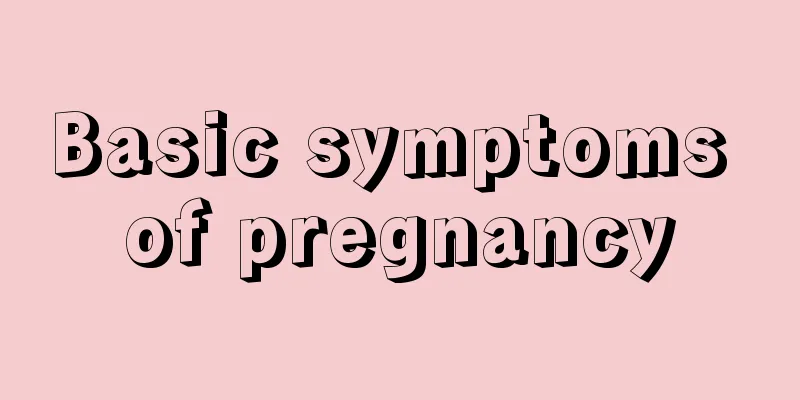Withdrawal bleeding for 6 days and I'm pregnant

|
If a woman takes emergency contraceptive pills, vaginal bleeding will occur one week later. This condition is called withdrawal bleeding, also known as replacement menstruation. If withdrawal bleeding occurs and an unexpected pregnancy occurs, it is normal because emergency contraceptive pills cannot provide 100% contraception. Once an unexpected pregnancy is discovered, it is best to go to the hospital for examination immediately, because the probability of ectopic pregnancy will greatly increase at this time. Withdrawal bleeding refers to a condition. Withdrawal bleeding usually occurs within 1 week after stopping the medication, and vaginal bleeding occurs, which is medically called withdrawal bleeding, but it may be longer in some patients. The longer the amenorrhea lasts, the more withdrawal bleeding there is. (1) If menstruation occurs after progesterone injection (with withdrawal bleeding), it means: ① The uterus is normal and the endometrium has a normal response. ② The ovaries secrete a certain amount of estrogen, which causes the endometrium to proliferate. ③ The functions of the central nervous system and hypothalamus-pituitary-ovary have been basically established, but ovulation is not yet possible, such as some patients with amenorrhea due to immature hypothalamus-pituitary-ovarian axis and polycystic ovary syndrome. (2) If menstruation does not occur after progesterone injection (except for physiological pregnancy, etc.), it means: ① The uterus may be abnormal. ② Insufficient ovarian estrogen secretion causes the endometrium to fail to proliferate and thus cannot shed and bleed. ③ Pseudo-amenorrhea caused by congenital atresia of cervix and vagina. Further examination is needed to determine the exact cause. (3) Withdrawal bleeding is also called "substitute menstruation" and is the same as menstruation. It is called substitute menstruation because the bleeding days are controlled by medication instead of being calculated according to normal schedule. The next menstruation can be calculated as a menstruation based on this replacement menstruation, and the next menstruation will be based on this time. Bleeding after taking emergency contraceptive pills is a relatively common condition, which is clinically called withdrawal bleeding. In fact, this kind of bleeding is generally not considered as menstruation. Several situations of bleeding after taking emergency contraceptive pills: Women of childbearing age take emergency contraceptive pills at different times of the menstrual cycle, and the effects on menstruation will also be different. If taken in the first half of the menstrual cycle, it may interfere with women's menstruation and cause vaginal bleeding; if taken in the second half of the menstrual cycle, it will interfere less with women's menstruation. If the amount of bleeding is similar to normal menstrual flow, it can be regarded as a menstrual period. |
<<: Caesarean section 1 year and 4 months pregnant again
>>: What ointment is more effective for vulvar itching
Recommend
6 reasons why your period comes frequently
About once a month, the endometrium of women of c...
What color of kitchen floor tiles is stain-resistant? What material is better for kitchen floor tiles?
We all know that the kitchen is an important plac...
I got a urinary tract infection after having sex.
Some female friends feel that they develop urinar...
What are the benefits of eating raspberries for women
Have you ever eaten fresh fruits like black raspb...
Is it good to eat grapefruit during late pregnancy?
You can eat grapefruit in the late pregnancy. Thi...
Kuntai Capsule for the Treatment of Premature Ovarian Failure
Premature ovarian failure is a "hidden multi...
What are some exercises for vaginal tightening?
After giving birth, women's vaginas become lo...
Don't use hot water to wash your private parts if they itch. Treating the symptoms is the only way to cure it.
When women find their vulva itchy, how should the...
Is there pain in the bone joints during normal childbirth?
Many people don't know much about sutures. In...
What are the dangers of running during menstruation?
Girls must pay attention to nourishing themselves...
Prevention and care of vaginal dryness in women
In fact, in normal times, many female friends do ...
Understand hyperthyroidism during pregnancy and protect your baby’s health!
Author: Xiao Jianzhong, Chief Physician of Beijin...
Will I have my period if the test paper is weakly positive?
If the early pregnancy test paper shows a weak po...
Four months pregnant, nipple discharge
When the pregnancy reaches the fourth month, the ...









